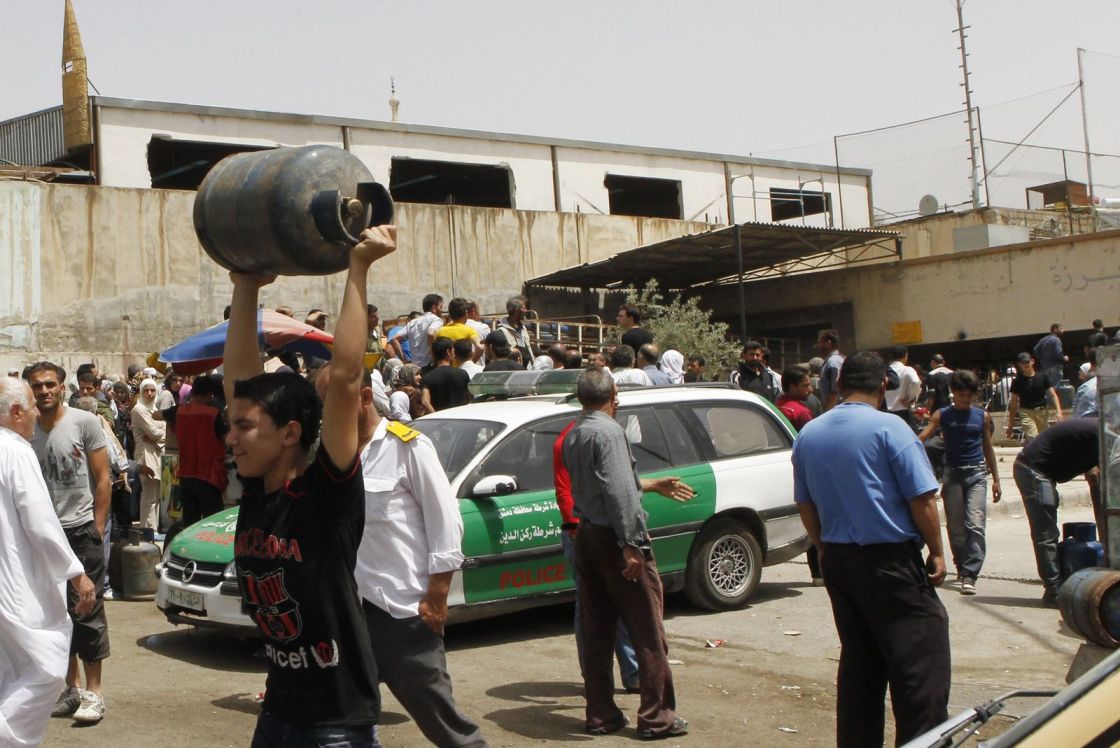- Editorials
- Posted
Syrians' Crises are Humanitarian and Political
The long list of crises experienced by the Syrian people continues to increase both in number of its items and the depth of each of them, to the extent that it now includes all aspects of the Syrians life without exception – from bread to fuel, fires, electricity, water, education, and health crises, in addition to the catastrophic living condition that is worsening day after day in parallel with the escalating brutality of high prices and the major plunderers and their policies, and in addition to all of these there are also the sanctions and siege. The crises of refugees, and externally as well as internally displaced persons also continue to deepen, in addition to the crisis of detainees, kidnapped and missing persons – all of these crises continue without any tangible solutions.
Despite the recognition of the various parties that these crises have a deep humanitarian aspect that requires adapting and subjugating the political aspect to the humanitarian one, what is actually happening is the trade in the humanitarian slogan for the sake of the political aspect of the problem, and this is done in a very narrowly interest-seeking and selfish manner.
In this context, «innovative» suggestions are generated on a daily basis to solve each problem separately and only partly, and as a «humanitarian problem». The results of such behavior are quickly manifested not only in the fact that the problem in question is not actually solved, but in that it has even grown deeper and more tragic.
For example, «economic solutions» that revolve around wordplay with meaningless and useless terms, all of which are intended to cover a steady trend to perpetuate the power of the big plunderers by lifting subsidies and through privatization and lending a blow to what remains of agricultural or industrial production, and through consolidating the relationship of dependency and subordination to the dollar and to the West, despite all what is being said about «heading eastward».
This also includes the method of dealing with the refugee crisis through the unfounded claim that the conditions for their return are now available or would soon be available. As for the detainees and the kidnapped, this is a question that is considered not existed, in the first place, for a solution to it to being tenably asked for! The same applies to the internally displaced who have not been allowed to return to their homes in a large number of cases, and in other cases, almost impossible conditions were imposed on them to be allowed to return, and of course with almost no compensation, and without any assistance for restoration or reconstruction of their residential neighborhoods.
All these bitter facts re-highlight one truth: All kinds of humanitarian crises that Syrians are experiencing are crises branched from the same single political root, but the main branch of this root was and still is the nature of the dominant class forces in Syria, whether in the regime or in the opposition, being plundering powers that have no other concern than maximizing their profits. Without the Syrian people having the actual opportunity for a comprehensive and radical change through the full implementation of UNSC Resolution 2254, these crises will continue to deepen further, and will reopen the door to extremely dangerous possibilities, including division of the country.
Perhaps the Syrian extremists from one side or the other, who do not stop praising themselves and praising what they are doing in their areas of control, are not doing anything but repeating, with the same voice, James Jeffrey's phrase: “Stalemate is the stability.” As long as they are in their positions and have the means to plunder, this is the required stability in their opinion. As this is the case, the interest of Syria and the Syrian people is still, as it was, the immediate and full implementation of UNSC Resolution 2254, being the number one entitlement facing Syria.
Kassioun Editorial, Issue no. 992, November 16, 2020


